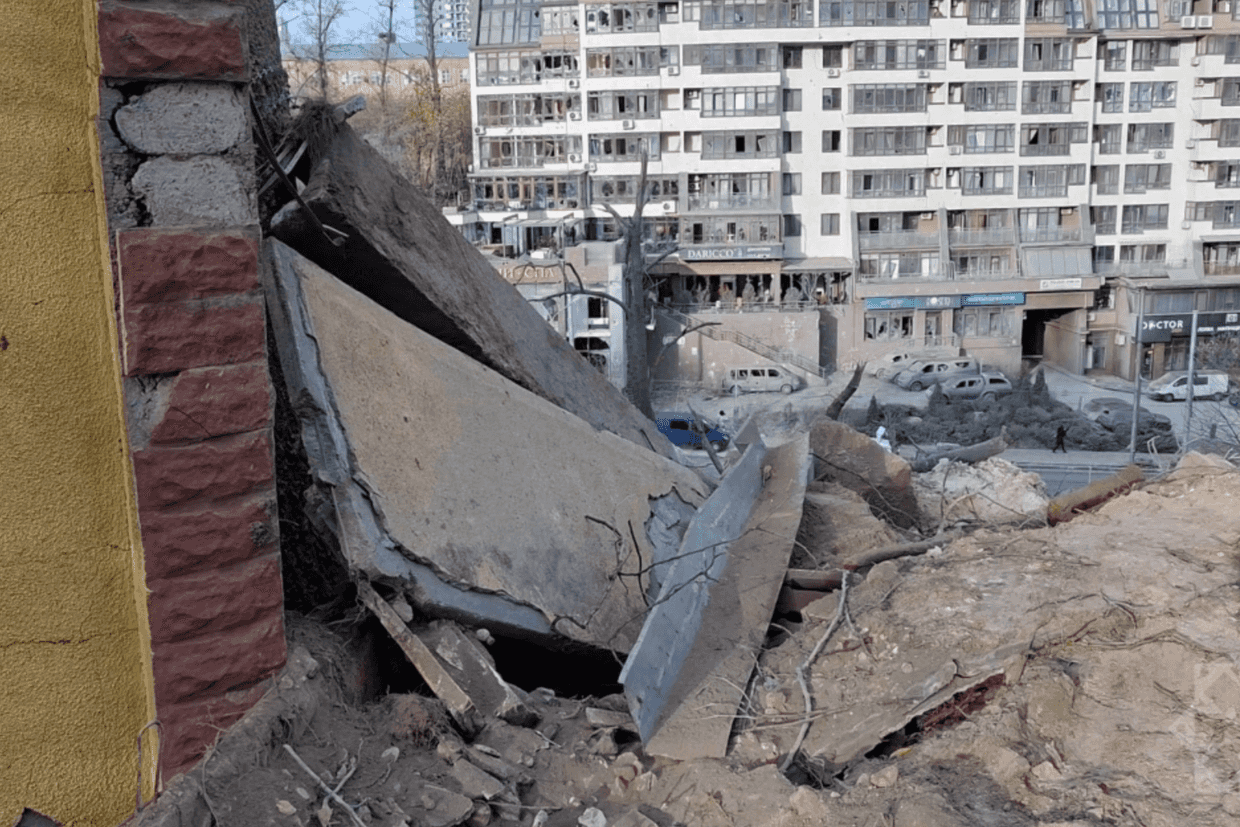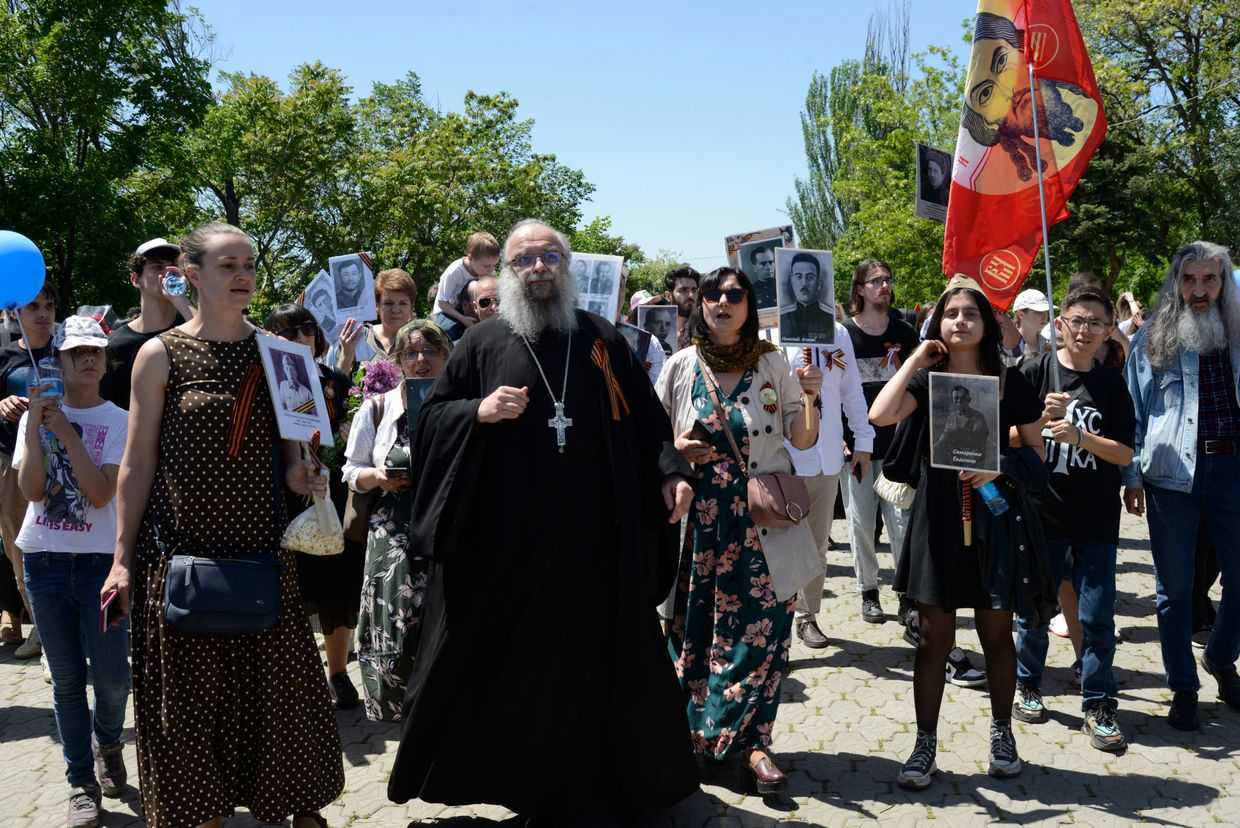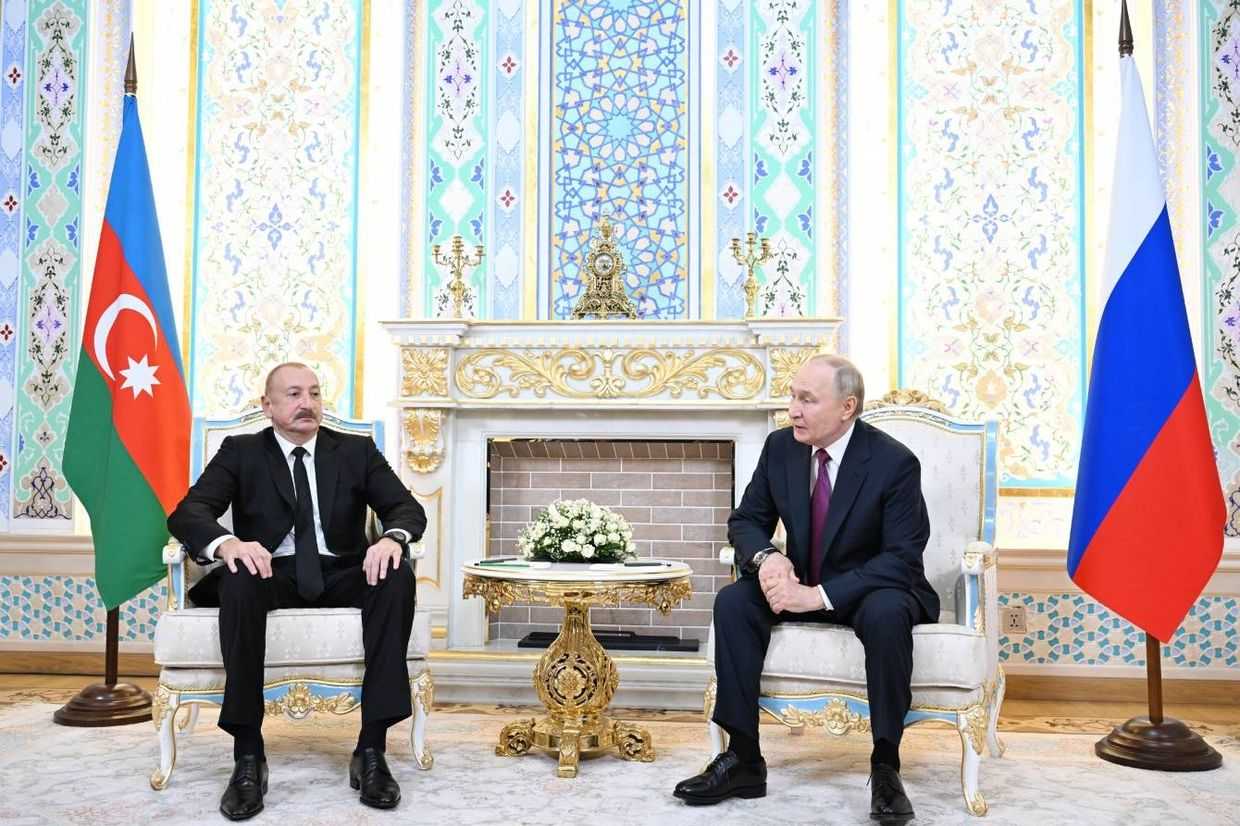Aliyev signs cargo cooperation deal with Russia despite heightened tensions

On Tuesday, Azerbaijani President Ilham Aliyev approved a finalised agreement to enhance bilateral cooperation on the ‘North–South’ international transport corridor between Russia and Azerbaijan.
While details on the agreement were scant in state-run and pro-government media, as well as independent outlets, the goal of the deal is to improve efficiency and generally ‘develop’ cargo connections.
The Interfax media outlet reported that the deal ‘sets the guaranteed amount of cargo to be transported through Azerbaijani territory each year after an upgrade of railway infrastructure’.
‘It will stand at least at five million tonnes from 1 January 2028, and at least 15 million tonnes after the sides make a respective agreement. A clause of the agreement regulates compensations between Russian Railways and Azerbaijan Railways should either side fail to meet transit obligations’.
The agreement was initially signed by the respective heads of transportation departments from each country on 21 December, four days before the fatal Azerbaijan Airlines crash that has since created a public rift in bilateral relations between Russia and Azerbaijan.
Azerbaijan has accused Russia of causing the crash, which killed 38 people, saying that an air defence missile had struck the plane as it approached its intended destination of Grozny. The accusations have been partially corroborated by a preliminary report from Kazakhstan, where the plane crashed. According to the report, ‘foreign metal objects’ penetrated the plane’s fuselage.
Aliyev has since called on Russia to admit its guilt, issue a full apology, and pay compensation to the survivors, which the Kremlin has so far refrained from doing.
Azerbaijan has publicly escalated its grievances with Russia over the crash — at least rhetorically, including a threat to take Russia to the International Court of Justice (ICJ) — prompting some to speculate that the incident risks upending the usually smooth relationship between the two countries.
The cargo transit agreement notwithstanding, Azerbaijan has also taken some concrete punitive measures. Earlier in February, Azerbaijan announced that it would be closing the country’s Russian House, a state-funded organisation intended to administer foreign aid, promote Russian culture, and support Russians living abroad.
Government officials have accused the Russian House of being a hub for intelligence activities, and pro-government media has also accused several former Azerbaijani government officials, some of whom are affiliated with the Russian House, of spying for a foreign power.
After Russian lawmaker Nikolai Valuev criticised the move and threatened retaliatory measures toward Azerbaijanis in Russia, the Azerbaijani Foreign Ministry declared him a persona non-grata.
Nonetheless, the signing of the agreement is a signal that Baku is likely cautious about how far it wants to escalate its spat with Moscow.
As Azerbaijan’s land borders have been closed for five years, ostensibly due to COVID-19 related restrictions, it is unclear if the agreement was intended to impact passenger travel.
Trade between Russia and Azerbaijan has continued to increase in recent years, particularly after the beginning of the full-scale war in Ukraine and subsequent international isolation of Russia.
Azerbaijan’s State Customs Committee told Interfax in January that ‘trade turnover between Azerbaijan and Russia rose 10.1% year-on-year to nearly $4.8 billion [...] placing Russia third among Azerbaijan’s foreign trade partners after Italy and Turkey’.











